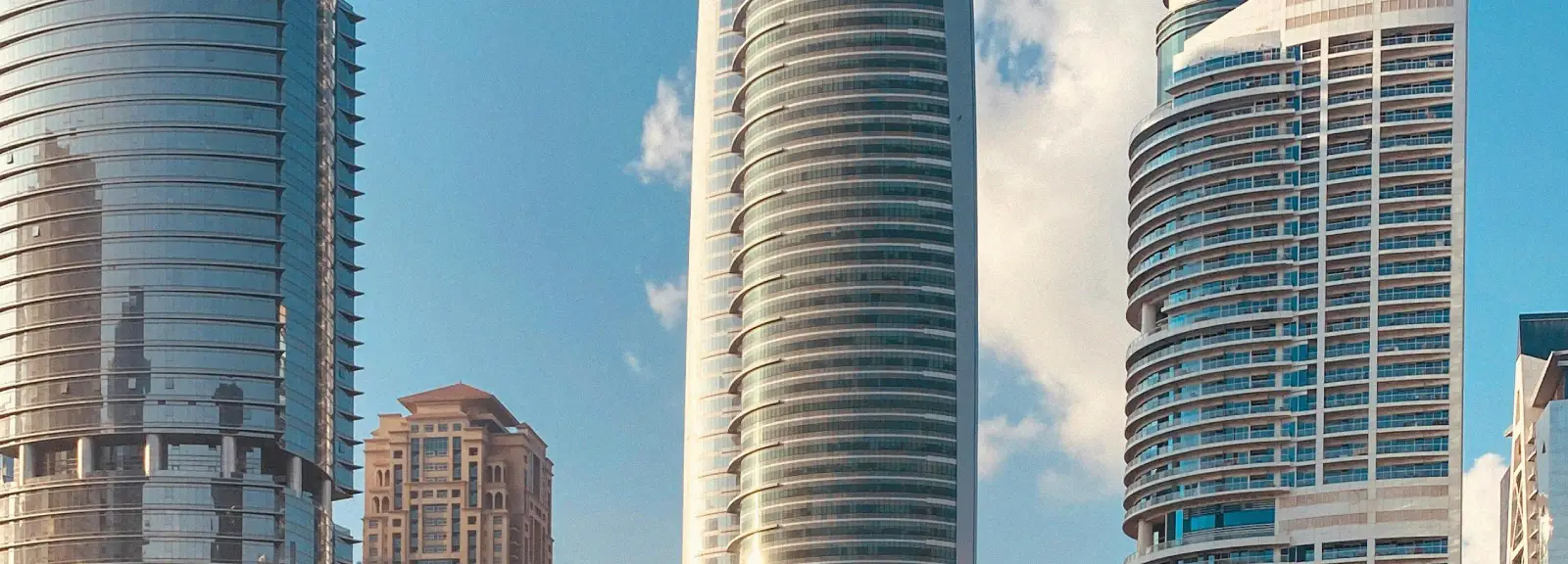A lot has changed in Dubai’s business laws, but many entrepreneurs are still making decisions based on outdated assumptions. One of the most common misconceptions is the belief that a local sponsor is always required to operate a mainland business.
This misunderstanding often results in extra costs, legal complications, and, in some cases, loss of business control. The truth is, many business activities in Dubai no longer require a local sponsor, and when they do, there are now safer and more transparent ways to structure the relationship.
Table of Contents
The Truth About a Local Sponsor in Dubai
Understanding the concept of a local sponsor in Dubai is essential for anyone looking to establish a mainland business in the UAE. Traditionally, a local sponsor was an Emirati individual or a UAE-owned corporate entity who legally owned 51% of the company shares, while the foreign investor owned the remaining 49%. This model was designed to protect local interests and comply with UAE laws.
The local sponsor in Dubai typically performed administrative or legal functions on behalf of the foreign business partner and was sometimes seen as a passive “sleeping partner.” However, the reality is more nuanced. The sponsor’s role, rights, and involvement vary significantly depending on the sponsorship agreement and the nature of the business.
Key points about local sponsorship in Dubai today:
- A local sponsor in Dubai can be an individual Emirati or a corporate entity authorized by the Department of Economic Development (DED).
- For many years, the law mandated a 51% ownership stake for local sponsors in most mainland businesses.
- Since June 2021, UAE federal law changes allow 100% foreign ownership in many business activities on the mainland, significantly reducing the mandatory role of a local sponsor in Dubai.
- Despite these changes, certain sectors and activities still require a local sponsor, making it critical to understand your business’s classification.
- The term “local sponsor” is often used interchangeably with “local partner” or “local shareholder,” but it specifically refers to the party holding the local ownership percentage.
The key takeaway is that while the local sponsor in Dubai was historically indispensable, modern regulations and reforms have shifted the business setup landscape, offering entrepreneurs more freedom and control than before.
Misconception #1: You Must Have a Local Sponsor to Start a Mainland Business

One of the most persistent myths around Dubai business setup is the belief that you must have a local sponsor in Dubai to establish a mainland company. This misconception stems from outdated laws and traditions.
Why this is a misconception:
- Since the amendment of the Commercial Companies Law (Federal Decree-Law No. 2 of 2015) and the 2021 update, the UAE government allows 100% foreign ownership for most mainland businesses, removing the need for a local sponsor.
- This applies to numerous sectors including consultancy, trading, services, and some industrial activities.
- The rule still applies to strategic sectors like oil, gas, and certain financial services, but for the majority of entrepreneurs, the local sponsorship requirement has been lifted.
What entrepreneurs need to know:
- Before assuming a local sponsor in Dubai is mandatory, verify if your business activity qualifies for full foreign ownership by checking the DED’s approved business activity list.
- The local sponsor in Dubai may still be necessary for activities restricted under federal or local laws, so professional advice is essential.
- Choosing the right business activity code from the start can help avoid unnecessary local sponsorship and associated costs.
The government’s move toward 100% ownership is part of a wider strategy to attract foreign investment and boost the UAE’s position as a global business hub.
By clarifying this misconception, entrepreneurs can save substantial costs and retain full ownership without unnecessary legal entanglements with a local sponsor in Dubai.
Misconception #2: All Local Sponsors Are Just ‘Sleeping Partners’
Many entrepreneurs assume that a local sponsor in Dubai will be a passive partner, merely holding shares on paper without involvement in day-to-day operations or decision-making. Unfortunately, this is not always the case.
Why this assumption is risky:
- Some local sponsors in Dubai expect a say in business operations, management decisions, or profit distribution beyond their legal ownership rights.
- In cases where the local sponsor in Dubai holds majority shares (51%), their influence is legally significant.
- Lack of clear contractual agreements with your local sponsor in Dubai can lead to disputes, control loss, or operational delays. And delays tied to sponsor-related bottlenecks are more common than you think, especially if the setup wasn’t done right from day one. Here’s a step-by-step guide to starting a business in Dubai that helps you avoid these common pitfalls from the beginning.
- Some local sponsors in Dubai may demand additional payments, or exert undue pressure, affecting the entrepreneur’s freedom to grow the business.
How to safeguard your interests:
- Always establish a comprehensive agreement with your local sponsor in Dubai that clearly defines the roles, rights, and limits of the local sponsor.
- Include clauses on decision-making, profit sharing (or fixed fees), conflict resolution, and exit options with the local sponsor in Dubai.
- Vet local sponsors in Dubai carefully. Choose those with a proven reputation and transparent business practices.
- Consider corporate local sponsors in Dubai, which can sometimes offer more structured and reliable partnerships.
This misconception around “sleeping partners” often leads entrepreneurs into costly, time-consuming conflicts with their local sponsor in Dubai. Proper legal and professional safeguards can protect you from these pitfalls.
Misconception #3: The Cheaper the Sponsor, the Better the Deal

It is tempting for new business owners to select a local sponsor in Dubai based on the lowest price. However, choosing a local sponsor in Dubai purely because they are cheaper often results in hidden costs and risks that far outweigh any initial savings.
Hidden costs associated with cheap sponsorship deals:
- Annual fees from your local sponsor in Dubai that increase without notice.
- Unexpected demands for profit shares or bonuses from a less reliable local sponsor in Dubai.
- Delays in processing documents or approvals caused by disengaged local sponsors in Dubai.
- Limitations on visa quotas tied to the license of your local sponsor in Dubai.
- Risks of disputes, legal claims, or sudden withdrawal of support from an unreliable local sponsor in Dubai.
What entrepreneurs should consider instead:
- The reputation and reliability of the local sponsor in UAE.
- Clear and enforceable agreements with your local sponsor in Dubai, ideally with fixed fees.
- Transparency in terms and renewal conditions from the local sponsor in Dubai.
- Professionalism in managing approvals and licenses.
- Whether the local sponsor in Dubai is an individual or a corporate entity.
Choosing a local sponsor in UAE purely based on price is a false economy. Instead of just looking for the cheapest option, you can save much more by structuring your business smartly to legally lower taxes as a foreign-owned company.
Misconception #4: You Can’t Change Sponsors Later

Many entrepreneurs believe that once they have agreed to a local sponsor in Dubai, they are stuck indefinitely with that sponsor. This misconception creates a sense of entrapment and discourages businesses from taking necessary corrective steps when issues arise.
The reality:
Changing or transferring your local sponsorship is indeed possible, but it requires strict adherence to UAE legal procedures. The process involves notifying the Department of Economic Development, obtaining the necessary clearances, and legally transferring ownership or sponsorship rights. While it can be a straightforward process when both parties cooperate, it may incur fees and sometimes require legal intervention if disputes arise.
Important considerations:
It’s crucial to negotiate contracts upfront with your local sponsor in Dubai that include clear exit or transfer clauses. This foresight can save significant time and money later on. Engaging experienced legal and business consultants to handle the transfer process ensures all paperwork complies with local regulations and reduces the risk of license cancellation or business interruptions.
The ability to change a local sponsor in Dubai is a fundamental legal right that many entrepreneurs overlook, often leading to unnecessary losses or prolonged conflicts.
Misconception #5: Sponsorship Automatically Means Revenue Sharing
A common misunderstanding is that having a local sponsor in Dubai automatically entitles that sponsor to a share of your business profits simply because of their legal ownership. Many entrepreneurs assume that ownership means profit-sharing, but this is not necessarily the case.
What the law says:
- Ownership and profit-sharing are distinct concepts. Legal ownership gives the sponsor control rights, but how profits are distributed depends entirely on the contractual agreement between the business owner and the local sponsor.
- Many sponsorship agreements clearly specify a fixed annual fee paid to the sponsor instead of a percentage of the profits.
- Without a clear, written contract, the default legal rules apply, which could potentially disadvantage foreign investors.
Best practices:
- Always have a notarized side agreement clearly stating financial arrangements.
- Agree on fixed fees or service charges rather than ambiguous profit-sharing.
- Keep detailed records and accounts to avoid disputes.
Avoiding assumptions about sponsorship and revenue sharing protects your business finances and clarifies expectations.
Real Costs and Risks of Outdated Sponsorship Models

Relying on traditional local sponsorship models without fully understanding their implications can expose your business to hidden costs, compliance issues, and long-term operational risks. What may seem like a simple setup with a local sponsor in Dubai can turn into a web of legal and financial complications if not structured properly.
Typical costs and risks include:
- Legal complications: Disputes over ownership rights, operational control, or breaches of contract are common when agreements with a local sponsor in Dubai lack clarity or enforceability.
- Financial burdens: Entrepreneurs may face unexpected sponsor fees, demands for a share of profits, or even penalties for breaching vague or unwritten agreements. Having a clear checklist of what business documents are legally required can help avoid miscommunication and protect you from being taken advantage of.
- Operational delays: Businesses often depend on the sponsor for critical processes like license renewals, visa quotas, and government approvals. If the local sponsor in Dubai is unresponsive or uncooperative, these delays can hinder your operations.
- Limited business growth: Unclear ownership structures or restrictive agreements can scare off investors and limit your ability to scale or secure funding.
- Reputation risks: Being tied to a sponsor with poor business ethics or a negative track record can harm your brand and credibility in the market.
Outdated sponsorship arrangements may have worked in the past, but in today’s competitive and regulated environment, entrepreneurs need more transparent, secure, and flexible sponsorship structures to grow confidently.
Many of these legal headaches trace back to choosing the wrong setup. Understanding the pros and cons of different legal structures can help you avoid future disputes entirely.
The Safer, Smarter Alternative: 100% Ownership with Legal Compliance
Due to recent legal reforms in the UAE, the traditional requirement for a local sponsor in Dubai has been significantly reduced. For many business activities, full foreign ownership is now permitted offering entrepreneurs greater freedom, control, and long-term security.
Benefits of 100% foreign ownership:
- Complete control over all business decisions, operations, and profit distribution.
- A simplified legal structure that eliminates dependency on a local sponsor in Dubai, reducing the risk of disputes or unexpected fees.
- Greater appeal to international investors, who often prefer businesses with transparent, fully foreign-owned structures.
- Lower operational risk, since decision-making and licensing are no longer tied to third-party approval.
- Full flexibility to transfer or sell ownership without needing permission from a local sponsor in Dubai.
How to leverage this opportunity:
- Conduct thorough due diligence to understand whether your business activity qualifies for 100% ownership under current UAE regulations.
- Work with experienced business setup consultants who can guide you through the latest laws, licensing options, and ownership structures.
- Where sponsorship is still legally required, consider corporate local sponsorship models with limited involvement and clearly defined terms.
- Explore the advantages of both mainland and free zone entities, as many now offer routes to full foreign ownership with competitive business benefits.
Don’t Let Old Myths Cost You Your Business

The role of a local sponsor in Dubai has evolved dramatically in recent years, yet many entrepreneurs still operate under outdated assumptions. These misconceptions can quietly drain your finances, limit your control, and put your long-term success at risk. We suggest checking our other article about business license costs every entrepreneur should be aware about before making the move.
The key to protecting your business is staying informed about current laws and structuring options:
- Not every business requires a local sponsor in Dubai. Many commercial activities now qualify for 100% foreign ownership under updated UAE regulations.
- Where a local sponsor in Dubai is still legally required, the right contractual agreement can safeguard your interests and clearly define roles, rights, and responsibilities.
- Modern business structures, such as free zone and new mainland options, allow for full ownership, easier investor onboarding, and reduced dependency on third parties.
If you’re still in the early stages of setting up, it’s worth comparing your options between free zone and mainland jurisdictions. Each comes with different sponsorship and ownership rules.
If you’re planning to start or expand your business in the UAE, make sure you’re equipped with up-to-date knowledge and expert guidance.
At GCG Structuring, we’re committed to helping entrepreneurs navigate these changes with confidence, offering compliant ownership solutions and end-to-end support to protect your control, investment, and long-term success.
FAQ
1. 0 What is the difference between a corporate sponsor and an individual local sponsor in Dubai?
A corporate sponsor refers to a UAE-owned company acting as the 51% shareholder in your mainland business, while an individual local sponsor in Dubai is a UAE national who holds the share in their personal capacity. While both fulfill the same legal role under traditional models, corporate sponsors are often perceived as more professional and structured. However, the need for either has declined significantly due to reforms that now allow 100% foreign ownership in most business activities.
2. 0 Can a local sponsor in UAE be held accountable for company debts or legal issues?
Yes, technically a local sponsor in UAE, especially one listed as a 51% shareholder can be legally tied to the business’s obligations if the partnership is not structured correctly. That’s why relying on informal local sponsorship arrangements without legal protection is risky. Structuring agreements properly helps prevent unintended liabilities for both parties.
3. 0 Does local sponsorship impact my ability to open a corporate bank account in Dubai?
It can. Some banks may require the physical presence of the local sponsor in Dubai when opening the bank account, particularly if they’re listed as a majority shareholder. With 100% ownership structures, this complication is avoided, making the banking process faster and more transparent.
4. 0 How do changes in the law affect existing businesses under local sponsorship?
Existing businesses that were set up under traditional local sponsorship can now apply to restructure their ownership in line with the current laws. That means they may be eligible to shift from a 51/49 split to full foreign ownership, provided their business activity is covered under the updated regulations. Many businesses are doing this in 2025 to reclaim control and eliminate unnecessary risks.
5. 0 What happens if my local sponsor in UAE passes away or exits the agreement?
If your local sponsor in UAE is an individual and they pass away, their shares become part of their estate, meaning your business could be entangled in inheritance proceedings. This is a major risk with outdated sponsorship models. Properly structured corporate solutions or compliant 100% ownership setups eliminate this vulnerability entirely.





